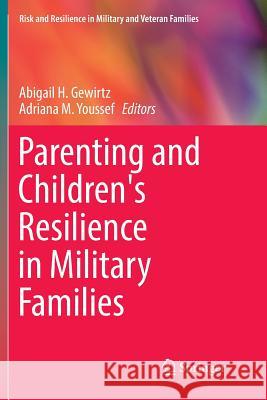Parenting and Children's Resilience in Military Families » książka
topmenu
Parenting and Children's Resilience in Military Families
ISBN-13: 9783319791814 / Angielski / Miękka / 2018 / 316 str.
Kategorie:
Kategorie BISAC:
Wydawca:
Springer
Seria wydawnicza:
Język:
Angielski
ISBN-13:
9783319791814
Rok wydania:
2018
Wydanie:
Softcover Repri
Ilość stron:
316
Waga:
0.46 kg
Wymiary:
23.39 x 15.6 x 1.75
Oprawa:
Miękka
Wolumenów:
01
Dodatkowe informacje:
Wydanie ilustrowane











